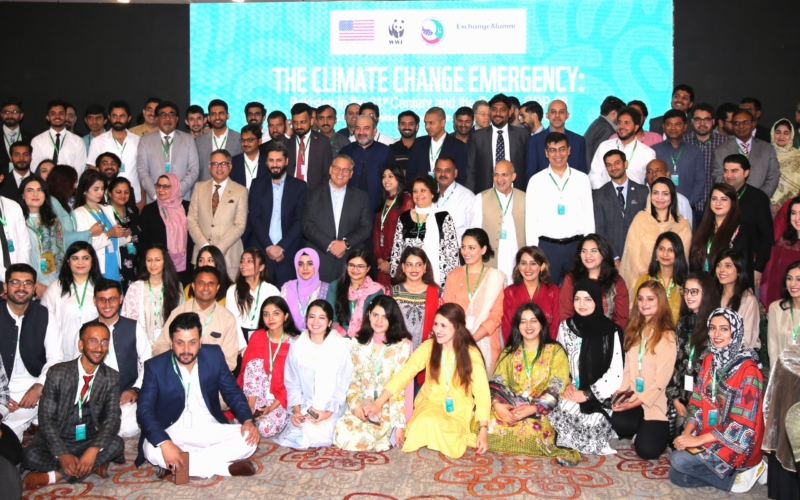By: Shehneela Mazhar
In a resounding display of collective dedication, the Pakistan-U.S. Alumni Network (PUAN) orchestrated a transformative event in collaboration with the Worldwide Fund for Nature Pakistan (WWF-Pakistan). Through unwavering support from the United States Government, PUAN spearheaded a two-day national conference titled “The Climate Change Emergency: Pakistan in the 21st Century and the Road to COP-28,” held in Islamabad from August 5 to 6, 2023.
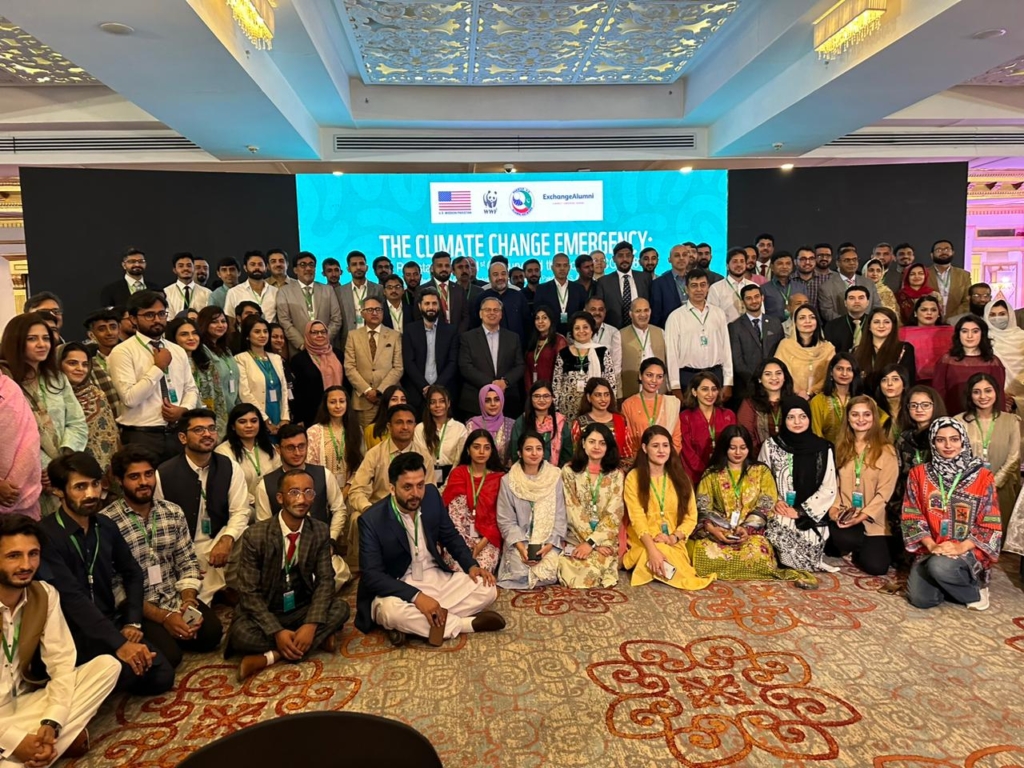
Bringing together over two hundred passionate attendees, this pioneering conference gathered alumni representing a spectrum of U.S. government exchange programs, distinguished climate experts, visionary government leaders, and impassioned activists. With a shared commitment to global welfare, these remarkable individuals explore innovative solutions and make personal pledges in the pursuit of addressing pressing climate concerns ahead of COP28.
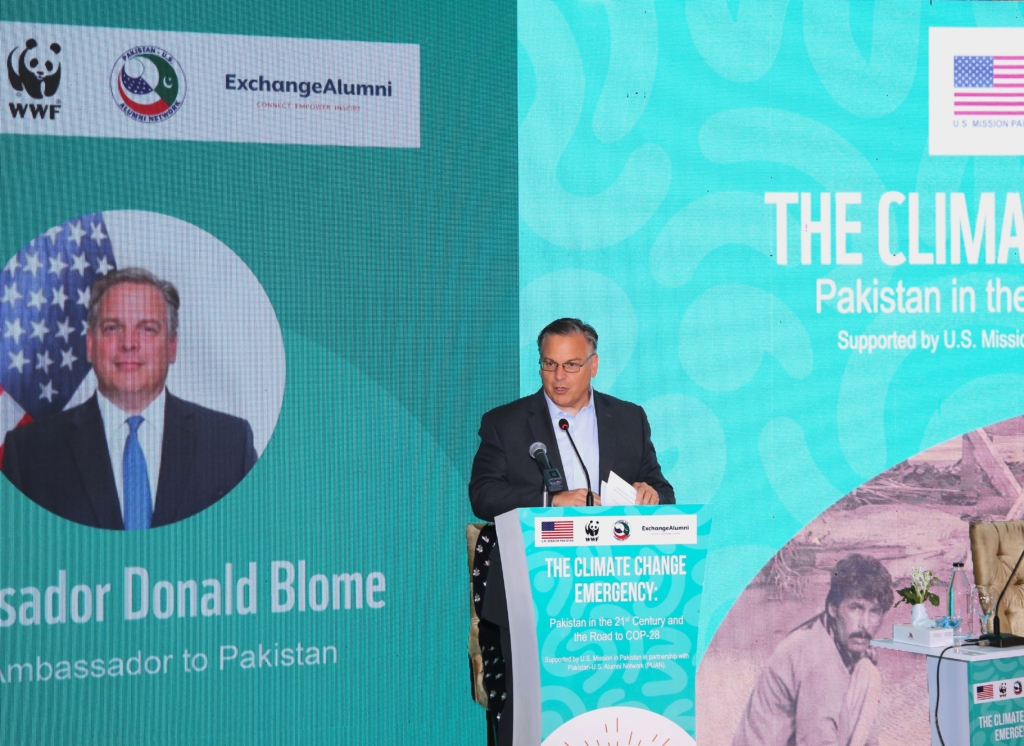
Distinguished by the presence of U.S. Ambassador to Pakistan, Donald Blome, the conference showcased PUAN’s remarkable diversity, uniting minds from scientific, governmental, academic, journalistic, activist, artistic, and educational domains. Ambassador Blome affirmed, “You have redefined how we think about climate change, informed policy, and taken your work and ideas to the United States and back.”
At the heart of this endeavor lies the groundbreaking U.S.-Pakistan “Green Alliance” framework—an audacious initiative designed to confront contemporary environmental challenges. This visionary partnership focuses on vital spheres of water management, climate-smart agriculture, and renewable energy, presenting a formidable force to combat the climate crisis.
Hammad Naqi Khan, Director General WWF-Pakistan, celebrated the conference as an unprecedented collaboration, declaring, “WWF-Pakistan is proud to collaborate with PUAN and the U.S. Mission in Pakistan to host this much-needed national conference.” He envisioned its potential to catalyze transformation by weaving the bright ideas discussed into influential policies and legislation, fostering a profound impact on both environment and communities.
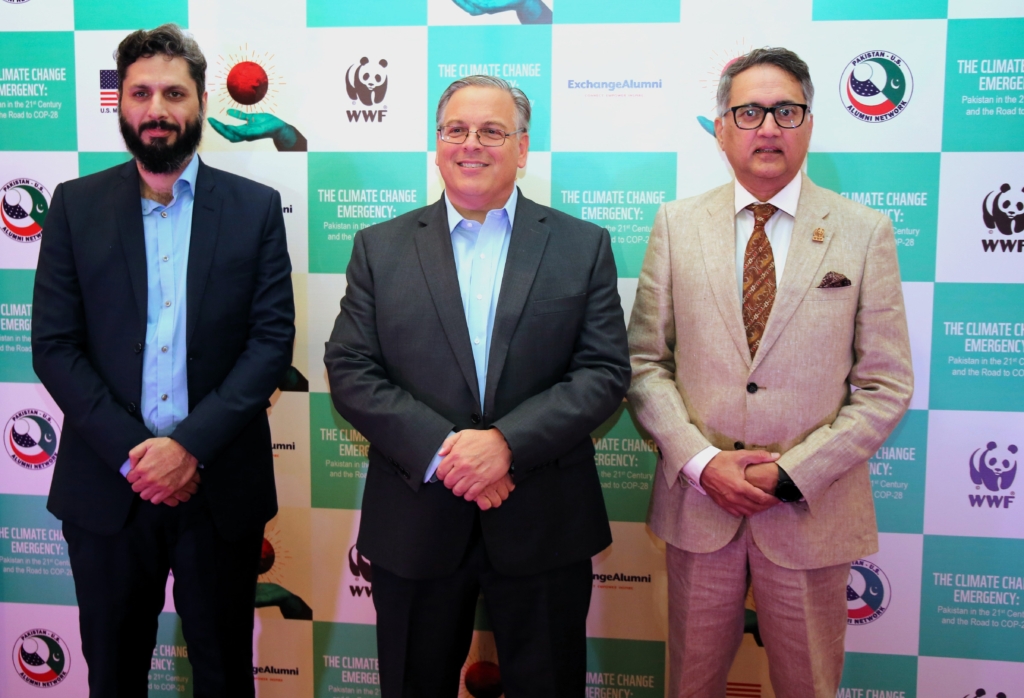
Intricately curated panel discussions emphasized the imminent need for innovation and financial backing in the arena of climate change. Interactive working group sessions, enriched by the insights of participants and experts, amalgamated to formulate potent national and regional climate solutions. A harmonious blend of intellectual discourse and hands-on experience, the conference embraced a moment of environmental mindfulness at Trail 5 of the Margalla Hills National Park—an outdoor engagement facilitated by the Islamabad Wildlife Management Board.

Under the expert guidance of IWMB, participants discovered the artistry of crafting seed balls, a tangible embodiment of their commitment to nurturing the environment. With deft hands and eager hearts, they molded a mixture of soil, seeds, and boundless hope into compact spheres—these humble “seed bombs” carried the potential to blossom into flourishing life.

The vibrant energy of the conference permeated through six distinct working groups, each a crucible of creativity and collaboration. Guided by expert mentors, participants devised innovative strategies to confront Pakistan’s climate change challenges head-on.

Working Group 1: “Strategizing Climate Change Mitigation”: Converging minds converged to devise strategic blueprints, weaving a tapestry of ingenious approaches to mitigate the far-reaching impacts of climate change. Working Group 2: “Building Climate Resilient Communities”: A symphony of ideas harmonized as participants constructed a roadmap towards fostering resilient communities, impervious to the adversities of a changing climate. Working Group 3: “Linking Climate Change into Policies and Actions”: Threads of discussion intertwined to bridge the gap between climate awareness and tangible policy implementations, channeling collective insights into actionable change.
Working Group 4: “Climate Finance”: Amidst a dynamic discourse on funding mechanisms, market dynamics, and non-market strategies for emissions reduction, participants illuminated pathways to financial sustainability in the fight against climate change. Working Group 5: “Just Transition for Pakistan”: A mosaic of concepts painted a picture of Pakistan’s just transition, marrying national development goals with climate-conscious strategies, including ambitious NDCs, transformative energy paradigms, and a burgeoning green job market. Working Group 6: “Climate Technology and Innovation”: In a realm of technological exploration, participants conjured visions of innovative solutions, fusing technology and innovation to carve a transformative path toward a climate-resilient future.
Within these immersive working groups, participants merged their diverse expertise, catalyzing an alchemical exchange of ideas. Guided by mentors, the participants harnessed their collective brilliance to craft innovative solutions that hold the power to reshape Pakistan’s climate narrative. The conference wasn’t just a gathering; it was a crucible of innovation, forging a united front against the climate crisis.
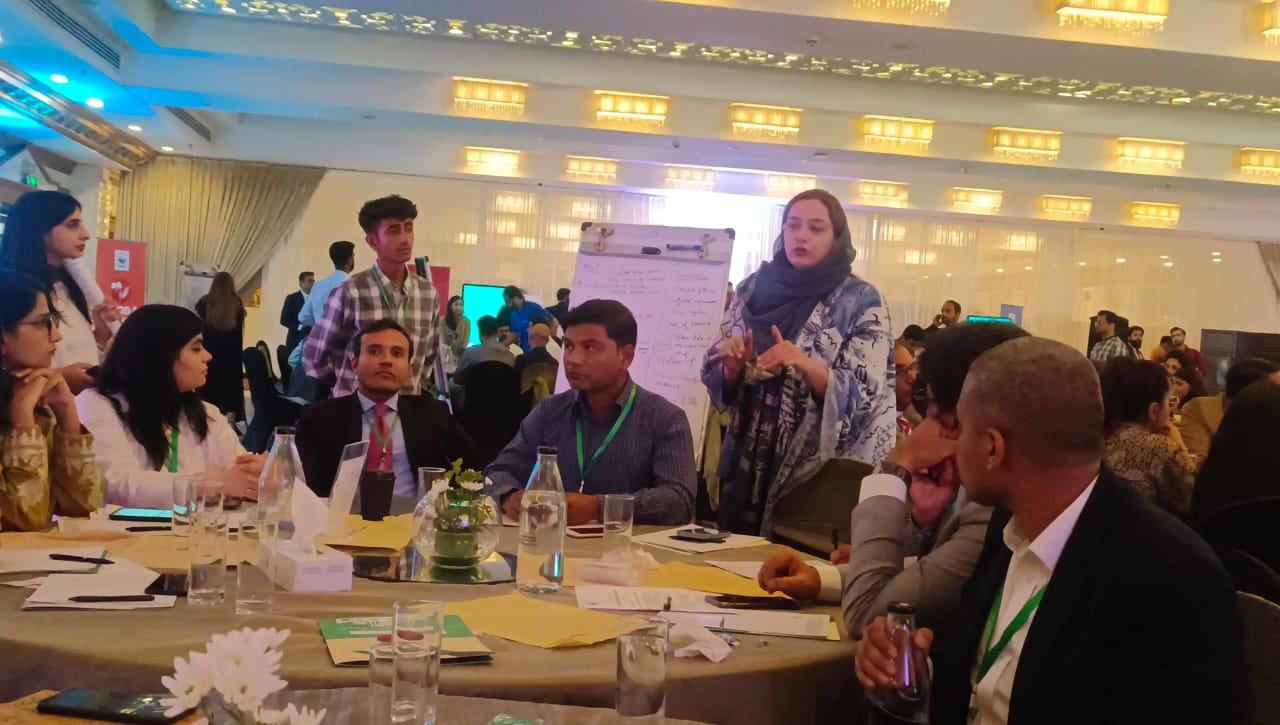
The resonance of the conference’s impact was vividly illustrated on the digital landscape, where the power of connectivity and shared purpose came to life. The hashtag #USPakGreenAlliance emerged as a radiant beacon of conversation, igniting discussions that swiftly ascended the ranks of social media trends. On August 5, the inaugural day of the conference, this hashtag danced its way to the upper echelons of digital dialogue, securing a coveted position among the top four trending topics of the day on Twitter. This feat wasn’t a mere coincidence; it was a testament to the passion and dedication of individuals who had converged to champion the cause of environmental stewardship.
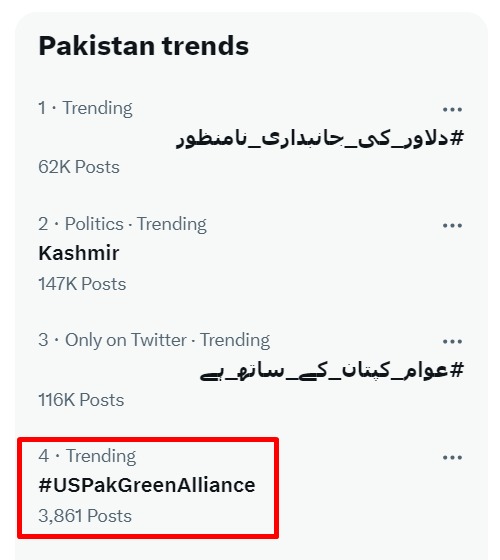
As the conference unfolded its inspiring session, participants embarked on a profound journey of commitment, pledging their aspirations across short, medium, and long-term horizons. These pledges, like beacons of hope, illuminated a path toward environmental safeguarding and the relentless battle against climate change. These pledges weren’t mere words; they were the seeds of transformation, sown by passionate hearts and fertile minds. Each commitment, whether modest or grand, contributed to a symphony of change that resonated far beyond the conference walls. Through their united efforts, participants illuminated the profound impact that individual actions, when woven together, can have on the tapestry of our shared planet. As these pledges take root and flourish, they inspire a collective narrative of hope, resilience, and unwavering dedication.

Celebrating the spirit of grassroots innovation, the conference illuminated the work of local organizations and fledgling start-ups, showcasing their indefatigable efforts in tackling Pakistan’s climate change challenges.

A resounding testament to bilateral commitment, the conference was made possible by the generous funding from the U.S. Mission in Pakistan, further solidifying its position as a hallmark event within the PUAN calendar. This gathering resonated with the overarching mission of the U.S. government, which annually invests over $40 million in exchange programs, enabling Pakistani citizens to engage in transformative educational experiences in the United States.
With a legacy spanning back to 2008, the PUAN network has served as a bridge of learning and nurturing and the conference stands as an indomitable manifestation our dedication, fostering meaningful dialogues, pioneering solutions, and illuminating pathways toward a greener, more resilient future for Pakistan and the world.
